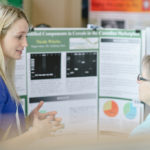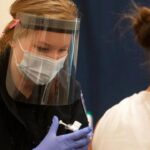You Can Learn a Lot from a Pair of Sneakers
To be treated like professionals, collegiate EMS providers need to display professionalism in their attitude and appearance.
Research and Scholarship in Collegiate Emergency Medical Services
JCEMS and NCEMSF are spearheading the drive to promote research and scholarship in the field of campus-based prehospital emergency care.
Dr. Michael Guttenberg – in Memoriam
Dr. Michael Guttenberg – an EMS physician, 9/11 responder, and dedicated advocate of collegiate EMS – passed away on October 17, 2017.
Tackling Barriers to Seeking Emergency Care
To encourage care-seeking behavior, collegiate EMS leaders spearheaded the development and implementation of a medical amnesty policy.
Drug-Facilitated Sexual Assault
Clinical review of drug-facilitated sexual assault in the college environment, health effects of drugs and alcohol in facilitating sexual violence, and proper response and treatment guidelines for collegiate first responders.










